Last spring I witnessed quite the little drama between an American Coot and a mated pair of Redheads.
I’m going to be a little anthropomorphic here with my narrative (and even my title) – sorry, just can’t resist.
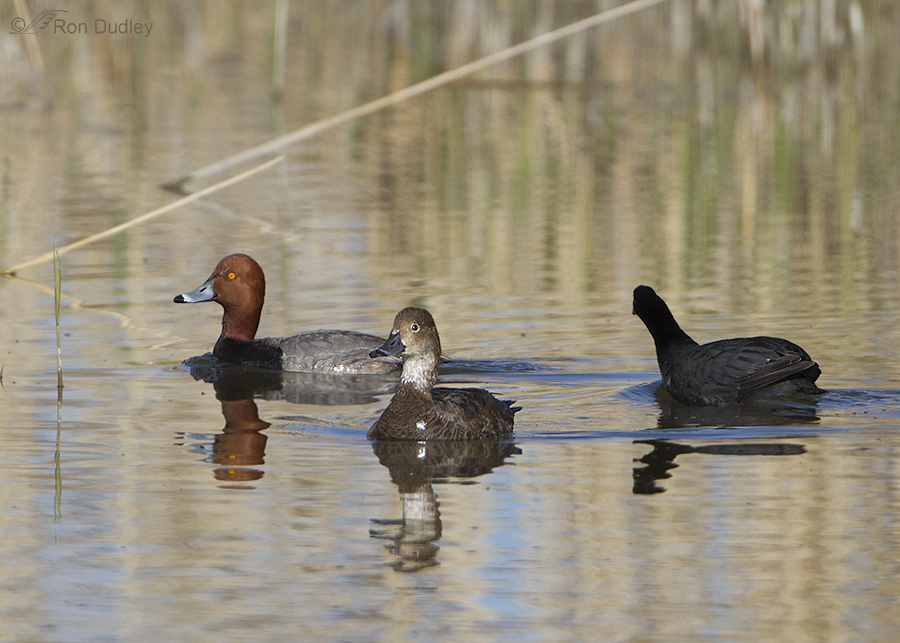
The Redheads seemed to be minding their own business but this coot took exception when they came too close to its nest. Here the coot is apparently looking away from the ducks but the Redheads seems to know that something’s potentially up.
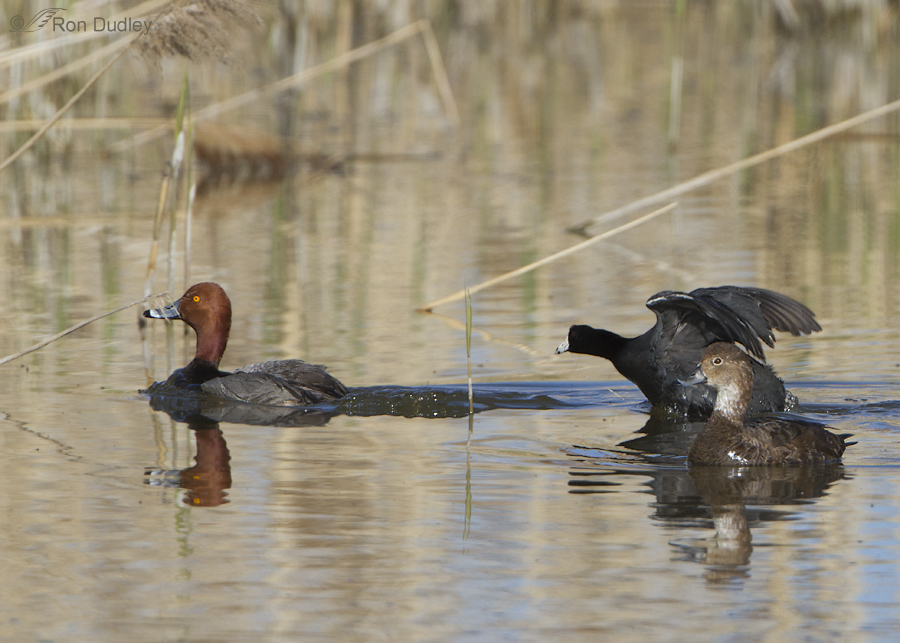
And it was.
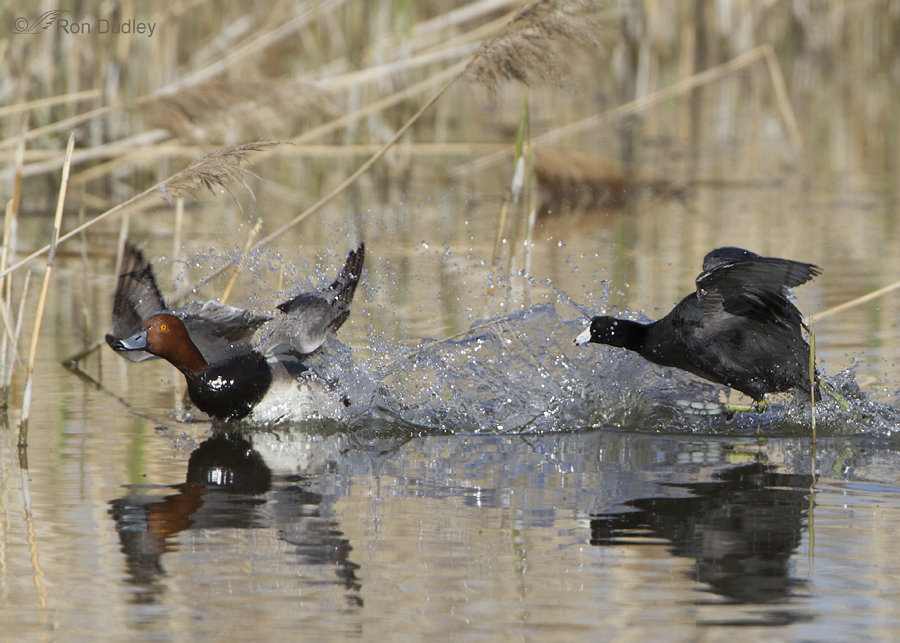
I’m always amazed at how fast the reactions of birds are. The Redhead almost seemed to know the attack was in progress before it actually was. You’ll notice that the coot is no closer to him in this second shot than it was in the previous one.
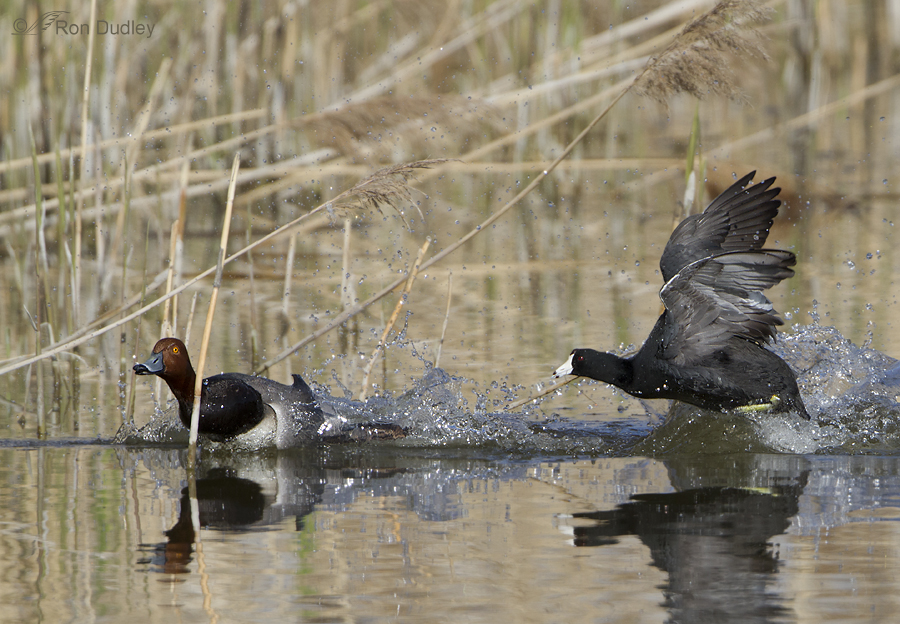
The Redhead seems to be trying to use some of the reeds to avoid the approaching coot.
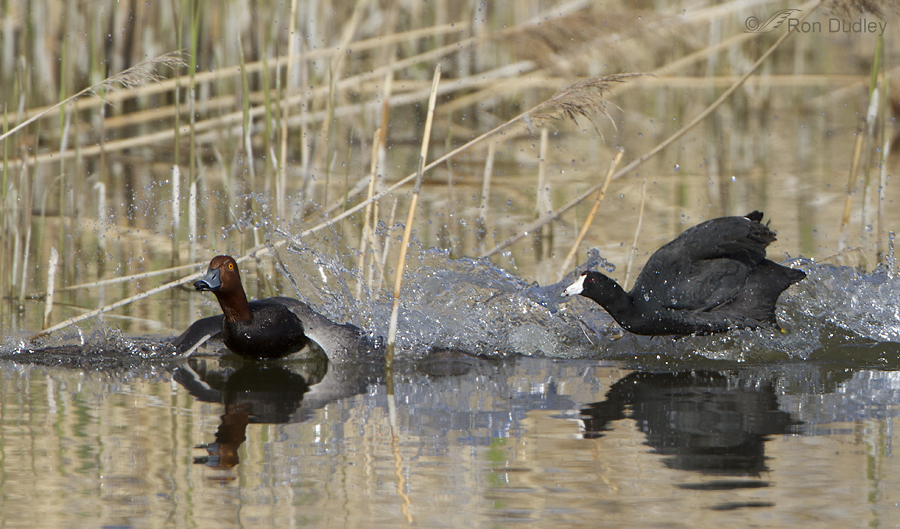
The attack continues…
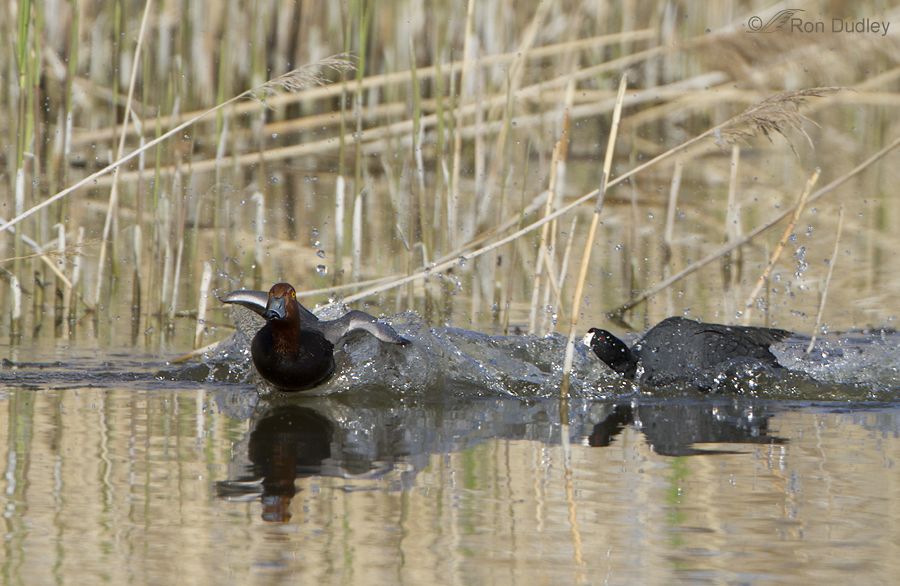
and continues…
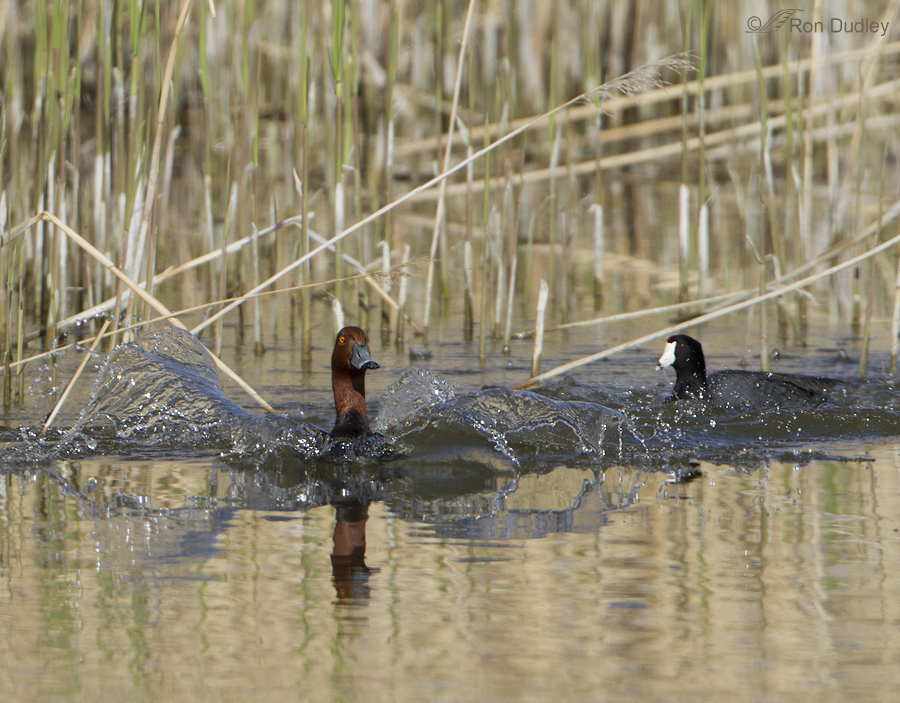
until both birds sense that it’s over and begin to settle back down into the water.
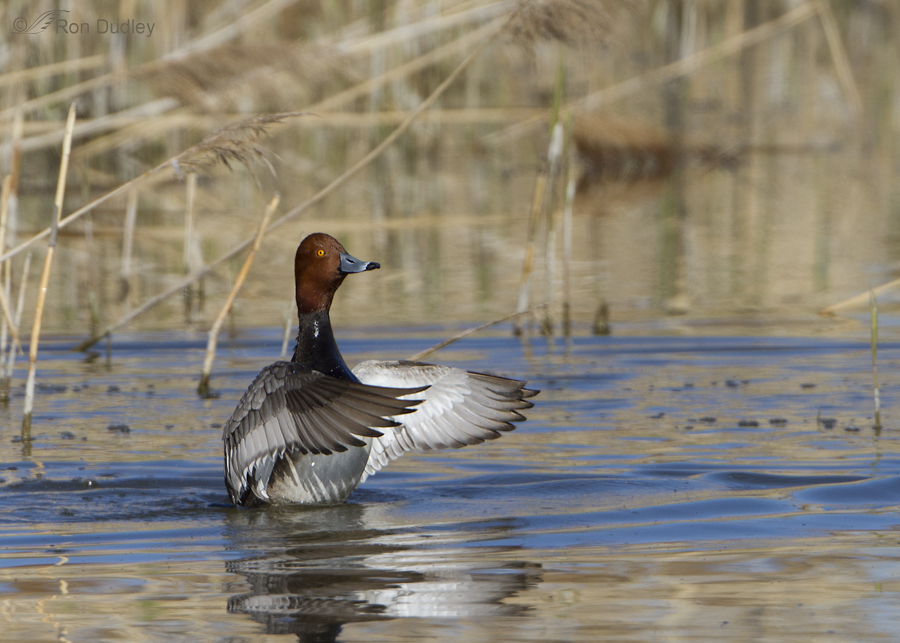
The male Redhead reacts with what seems like a celebratory wing-flap that it survived the attack without any damage…
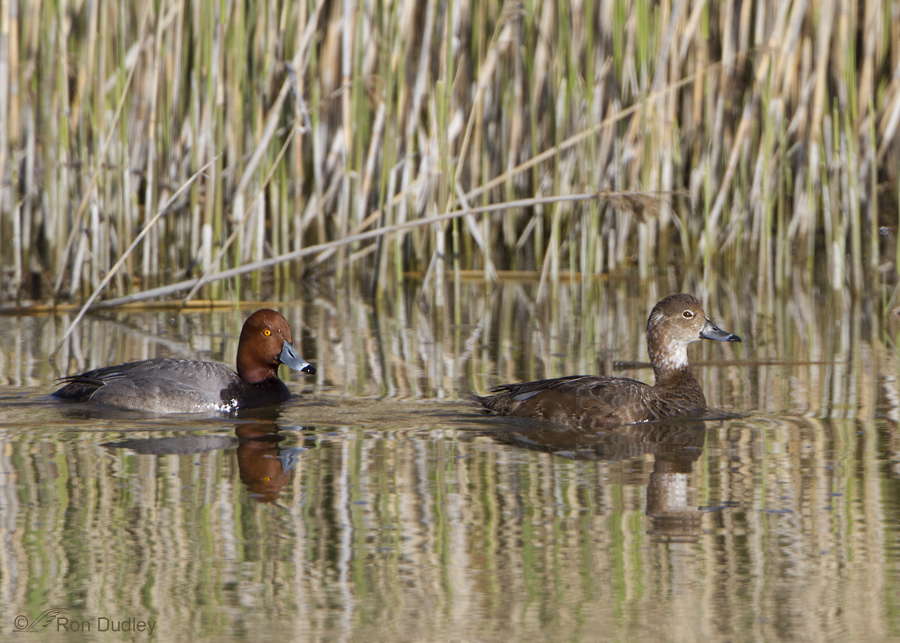
and then swims off contentedly with his lady.
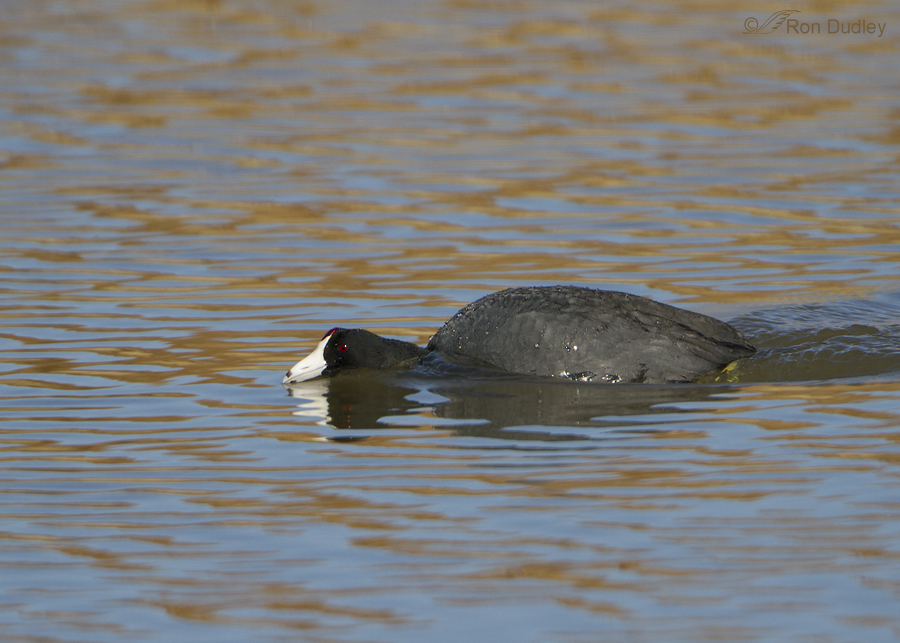
But the coot isn’t taking any chances and lays low in the water while facing the retreating ducks with a threat pose.
I was pleased to get this sequence without clipping any birds and keeping multiple subjects sharp in the frame – not easy to do with the 500mm and attached teleconverter. Mostly I just got lucky that the birds stayed pretty much in the same plane. (Sorry, I don’t have time this morning to include my techs).
Ron


I meant to comment on this one. too. I love the action. I don’t know if the Gallinules are in any way related to Coots, but I observed Gallinule behaviour for quite some time. They have a highly developed “society” and hierarchical and structured of coexisting. They have these little “colonies”, where there are juveniles and even chicks together. The juveniles also feed the chicks. I don’t know about the coot society, but it reminded me so much of this Gallinule behaviour I once witnessed, and they also had the mature up front defending their area, just like this coot.
Beautiful sequence, Ron. I do notice that after the attack was thwarted and the male reacted in a celebratory manner, that he has the female swim in front of him in the direction of where the attack began. Very interesting! Hmmmmm!
You’ve got a point there, Rich.
Wonderful series! Your action sequenc shots are phenominal! Thanks for sharing!
Thank you, Charlotte.
Ron, I love the last photo of the coot–so expressive! In the early photo where the coot is looking away but approaching, I wonder if that is an example of displacement behavior, where an agitated animal is looking away from what is bothering it and sort of pretending to busy itself with something else.
Yes, I think it could very well be displacement behavior, Brian. Good observation!
Oh. What a sequence. Being obsessed with bird watching has given me a whole new perspective on the term ‘pecking order’. Thanks Ron, I thoroughly enjoyed this.
Yeah, you can sure see where that phrase came from when you observe birds, Elephant’s Child.
Wow Ron, this is an exciting adventure story and I was afraid that grouchy old coot would bite the redhead!
“Grouchy” is often a perfect word for coots, Janice.
Nice behavioral series! Very impressive quality, as usual. The coot may get overlooked as a photo model a lot, but they sure can demand attention when they need to!
Thanks, Wally. The coot is a great subject for behavioral photography.
What a great event to observe!! Bird behavior is always interesting to watch, and when you can catch it with your camera, so much the better. I’m discovering that picking up on even the simplest behaviors can help with identifying species that are new to me. Thanks for more great photos.
I couldn’t agree more, Susan. Simple behaviors are often what alert you to what may be coming next – knowing behaviors and anticipating them is so very important in bird photography.
Such an entertaining story! I love the last shot of the coot being one with the water…. Thanks again for a bright morning narrative.
I’m glad you enjoyed it, Tana.